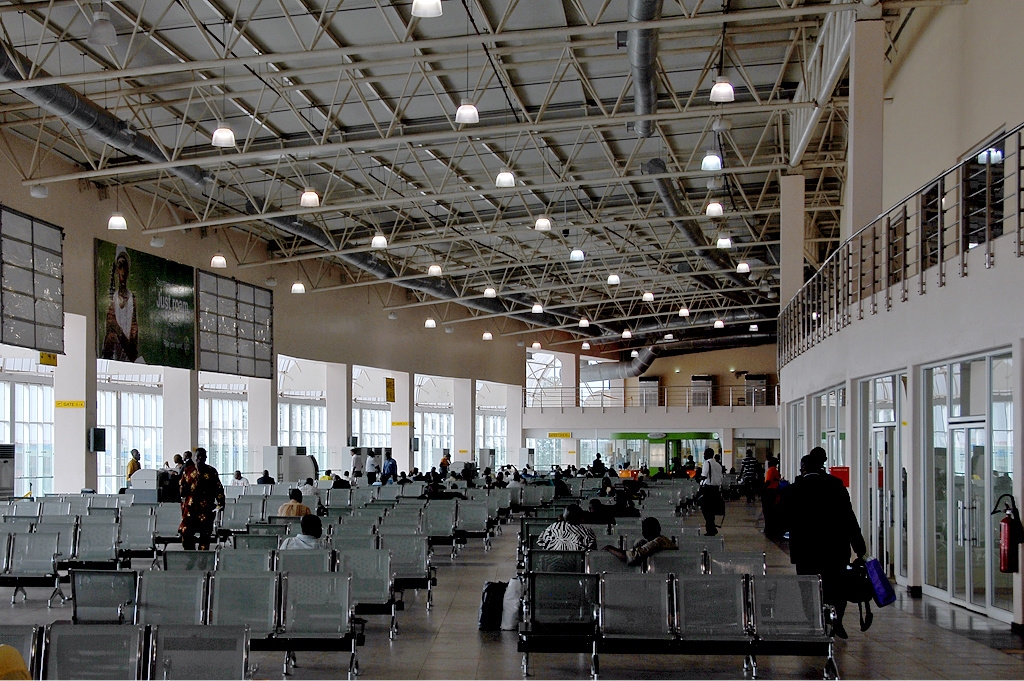The Federal Airports Authority of Nigeria (FAAN) said it would boost revenue by 75 per cent in the next one year, enhance transparent financial transaction and enhance passenger facilitation with the introduction of cashless policy, which kicked off yesterday in Lagos at the Murtala Muhammed International Airport (MMIA), Lagos.
The agency said that by the end of the first quarter of 2026, all cash points of FAAN and revenue channels will go fully cashless.
Speaking during the unveiling of the policy themed, ‘Operations Go Cashless,’ yesterday, the Managing Director FAAN, Olubunmi Kuku, said, “We project a 50 percent increase in revenue collection at this pilot stage, rising to 75 percent as we integrate more points, with the goal of tripling revenue within the first year of full implementation.”
Kuku said these additional funds will be strategically reinvested into further infrastructural development across the airports to improve capacity in response to passenger growth and introduction of more state-of-the-art facilities.
Kuku, represented by the Director, Public Affairs and Consumer Protection, Henry Agbebire, explained the agency is not just launching a new payment system; but fundamentally reshaping the experience at the airports and reinforcing commitment to accountability, transparency, and excellence.
Kuku said the initiative which is carried out in partnership with Paystack, would birth a comprehensive, cashless and contactless payment solution that will be deployed across all airports under the management of the agency.
She said FAAN would begin the national rollout with its flagship international gateways: the Murtala Muhammed International Airport, Lagos, and the Nnamdi Azikiwe International Airport, Abuja, adding that effective from yesterday, the collection of physical cash will be phased out gradually at all FAAN revenue points, including the airport access gates, car parks, and VIP and protocol lounges.

The FAAN boss said that for passengers, the initiative would mean faster, seamless, and more secure transactions and a goodbye to delays and inconveniences associated with cash handling, adding that the move is a direct response to demand modern, efficient, and world-class service.
“By significantly reducing our reliance on physical cash, we are building a system that is inherently more transparent. Every transaction will be electronic, traceable, and secure.
“This directly enhances our revenue assurance capabilities, ensuring that every Naira due to the Authority is duly collected and accounted for. This is not just good for FAAN; it is a testament to our commitment to national development and fiscal responsibility.
“Furthermore, embracing these digital trends ensures that our airports remain competitive and aligned with global best practices. We are sending a clear message to the world that Nigeria is open for business, with infrastructure that meets international standards,” Kuku explained.
Kuku also said that trained brand ambassadors have been deployed at access gates and terminal areas and their role is to guide passengers, assist with on-boarding, provide live demonstrations, and answer any questions passengers may have.
The Director, Commercial and Business Development, FAAN, Adebola Agunbiade, further explained that the ‘Go-Cashless’ vision is built on four key pillars which include to significantly enhance operational efficiency; reduce congestion and delays for a smoother passenger experience; improve revenue collection and accountability; and align FAAN with global best practices for seamless airport access and service delivery.
“We are phasing out cash transactions at all participating FAAN revenue points. Our technology partner, Paystack, has deployed contactless payment terminals at our access gates, car parks and VIP lounges.
“This means that each motorist and customer will use their own contactless card for payment. Human involvement in cash collection will be eliminated, thereby removing opportunities for revenue leakage and ensuring that every Naira is accounted for.
“The technological backbone of this system is robust. Paystack has designed a closed-loop system where NFC card readers are seamlessly connected to their payment infrastructure. Each tap is instantly validated and authorised, ensuring reliability even in our high-traffic airport environments,” Agunbiade explained.
She disclosed that every month, the airports access gates in Lagos and Abuja recorded over three hundred thousand vehicular entrances respectively; that the VIP and Protocol lounges serve thousands yearly and “we believe we can improve the quality of service to our customers.”
In his speech, Paystack Director of Commercial, Fisayo Kolawole, said the company can receive payments conveniently and transparently and assured stakeholders and potential air travelers of the card’s security features.
“Fraud prevention was at the forefront of this partnership. Paystack is a PCI DSS Level 1 service provider, the highest global standard. Every transaction follows rigorous encryption, storage, and transmission requirements,” he said.
Kolawole explained that card data is encrypted and tokenized, making unauthorized use impossible.
“Even if someone physically holds the card, they cannot use it fraudulently. Every detail is protected end-to-end using TLS and SSL protocols,” he explained and added that Paystack never stores sensitive card data in plain text.
He said the card uses machine learning models customized for Nigeria. “We run real-time fraud monitoring across every transaction. Suspicious activities trigger automatic checks and 3D Secure authentication, requiring OTPs or biometrics. Only authorized users can transact,” he assured.






